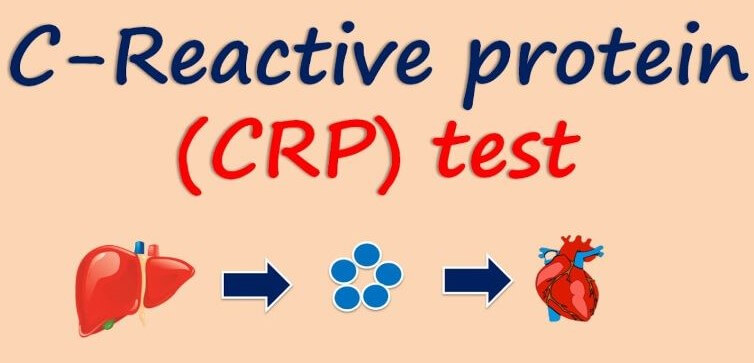What is the full form of CRP?CRP: C-reactive proteinCRP stands for C-reactive protein. The liver produces it in response to inflammation. It is also known by various other names, such as high-sensitivity C-reactive protein (hs-CRP) and ultra-sensitive C-reactive protein (us-CRP). The level of CRP increases in the blood due to various reasons, which can be cancer or an infection, etc. 
A c-reactive test is performed to measure the level of C - reactive protein in the blood. This test is used to find medical conditions that cause inflammation. Some of the condition that leads to inflammation are listed below:
Besides this, if a person is showing symptoms like chills, fever, rapid heart rate, nausea, and vomiting, a doctor may perform this test. How is CPR performed?Blood as a sample is taken with a needle from a vein located in the arm. The sample is collected in a vial and sent for testing. A high level of CRP in the blood indicates some type of inflammation in the body. However, it does not tell the cause or location of the inflammation. CRP is measured in milligrams per litre of blood (mg/L). No special preparation is required for this test. There may be slight pain for a few seconds when the needle is inserted. Besides this, a high level of CRP is not always due to a medical condition as there are many other factors that may raise its level, such as smoking, obesity, lack of exercise, etc. CRP test is different from the high-sensitivity (hs) CRP test. Although both tests measure CRP, they diagnose different conditions. A hs-CRP can measure very low levels of CRP and is used to find out the risk of heart disease. What does it serve?A CRP test may be used to detect or track inflammation in both acute and long-term situations, such as:
If you have sepsis, your doctor may use a CRP test to determine the effectiveness of your treatment for chronic inflammation or to guide treatment choices. Your body's severe reaction to an infection that spreads to your blood is sepsis. It is a medical emergency that could endanger life. Is a CRP test necessary, and why?You might need this test if you exhibit any of the indications of a bacterial infection listed below:
If your doctor suspects you have a chronic illness that produces inflammation, you could also need a CRP test. The condition will determine the symptoms. This test may be necessary to track your condition and treatment if you have already been identified as having an infection or a chronic disease that produces inflammation. CRP levels vary according to how much inflammation is present in your body. Your inflammatory treatment is working, or you are healing on your own if your CRP levels drop. Is there anything I need to do in order to prepare for the test?Your results could be impacted by some medications. Therefore, be sure to let your doctor know if you use any vitamins or medications, such as ibuprofen, aspirin, or other NSAIDs (NSAIDs). Never discontinue any prescription medicine without first consulting a physician. Does the test involve any risks?Receiving a blood test carries very little risk. The majority of adverse effects are temporary. However, you can have some slight soreness or bruising where the needle was put. What do the results suggest?You can determine how much inflammation is present in your body based on the findings of your CRP test. Your test results, however, are unable to reveal the cause of the inflammation. Your healthcare professional will use your CRP values, the outcomes of additional tests, your symptoms, and your medical history to determine a diagnosis. Blood levels of CRP are typically relatively low in healthy individuals. Any increases above normally indicate that your body is inflamed. It is essential to ask your provider what your results signify, as laboratories measure CRP levels differently and interpret "normal" CRP ranges differently.
Next TopicFull Forms List
|
 For Videos Join Our Youtube Channel: Join Now
For Videos Join Our Youtube Channel: Join Now
Feedback
- Send your Feedback to [email protected]
Help Others, Please Share









